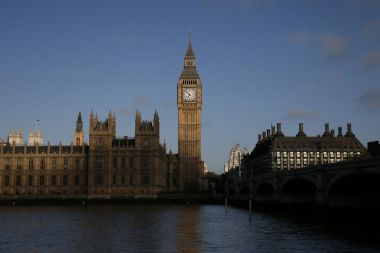What will the new Labour leadership need to do to get evangelicals to vote for them?

The nominations for the Labour leadership are all in. The vote won't be taken until September, and there's a long, hot summer of campaigning ahead.
One thing's for sure: Labour will have its work cut out with evangelicals.
Tearfund released a post-election poll this week on what Christians thought were the greatest problems facing us at the moment.
Unsurprisingly, social justice was pretty high at 27 per cent, followed by secularism – 18 per cent, and unlikely to concern the majority of non-religious people in the country, migration (14 per cent) and poverty (12 per cent). Social justice and poverty are arguably too similiar to be easily distinguishable, which puts them top of the list on aggregate, at 39 per cent. (That means climate change, which at 28 per cent was Tearfund's headline winner, still comes in a respectable second.)
Buried in the tables, however, are some fascinating data about the way Christians actually voted – ie, which parties they thought might actually deliver in terms of solving these problems. Intriguingly, while the overall result puts the Church pretty much in the centre – 28 per cent of Christians voted Conservative and 24 per cent Labour, with 15 per cent voting Liberal Democrat – no less than 30 per cent of charismatics and 31 per cent of evangelicals voted Conservative. Only 16 per cent of evangelicals voted Labour.
There's a good deal of wiggle room in these categories, which are self-defined; and of course a charismatic is probably an evangelical, though the reverse isn't necessarily true. Furthermore, most evangelicals and charismatics didn't vote Tory. Nevertheless, this is the largest single block of votes by a good margin for each group.
Now, I don't believe for a moment that it's possible to map a set of evangelical distinctives on to any political manifesto; that's not how people decide these things. A good part of their decision-making is about what feels right, and that's about church culture rather than particular programmes.
So what is it about the Tory message that appeals to this particular tribe? And why did Labour fail to appeal to it?
I'll declare an interest here and say that I didn't vote Tory. But I believe their attraction has something to do with their stress on a sense of responsibility. In the classical evangelical narrative, people are not permanent victims. Yes, they are under the power of sin until they're freed by Christ: "I do not do the good I want to do, but the evil I do not want to do – this I keep on doing," says Paul (Romans 7:19, NIV). But he continues (verses 24-25), "Who will set me free from the body of this death? Thanks be to God through Jesus Christ our Lord!"
The evangelical world is one of intense moral effort, self-discipline, self-improvement and accountability. Freedom means freedom to achieve, to excel and to contribute. Of course there is a deep concern for people who are ill, unfortunate and limited in some way. But the deep structure of the evangelical mindset is about responsibility and change.
The Labour Party, and the Left generally – and the Christian Left in particular – has failed to match this narrative. It has focused worthily on the vulnerable, the poor and the excluded, but in a way that fails to acknowledge either human sinfulness or human potential. It's allowed the Tories to present the Left as the refuge of losers and scroungers.
The answer from anti-poverty pressure groups and from the liberal Left has been to highlight the failures and injustices of government policies – and that's easy enough. Yes, ATOS made many horrible misjudgments about whether disabled people were well enough to work. Yes, benefit sanctions are savagely undiscriminating in the way they operate. Yes, the "bedroom tax" is a blunt instrument which strikes people who'd love to downsize but have nowhere else to go.
But: we know very well that some disabled people can work, that some people do need the stick as well as the carrot to get them back into work, and that there's nothing wrong in principle with encouraging single people in four-bedroom homes to do the decent thing and release them to families. None of these initiatives are wrong in principle, though they have been implemented in cruel and careless ways. And of course, some people – the majority of those on long-term benefits – will always need support and it should be given willingly. However: what this survey shows is that evangelicals do care about the poor, but that more of them trust the Conservatives than trust Labour to do something to help them. That is deeply galling, but it's indisputable.
Until the Left is willing to say openly that some people get benefits who don't need them, that some people – and yes, it's a minority – do play the system and that not everyone can have everything they want just because they deserve it, the Left is not going to reclaim the evangelical vote. The narrative of perpetual victimhood is not a story we believe in.
Follow @RevMarkWoods on Twitter.











